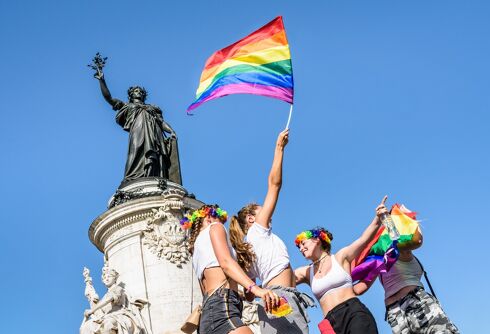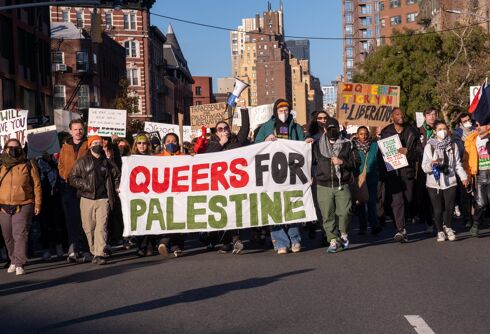
Marek Ślusarczyk, Wikimedia
BANGKOK — Gay rights activists are welcoming a clause in a draft of Thailand’s new constitution that is aimed at protecting the rights of gay and transgender people.
The Constitution Drafting Committee, a group hand-picked by the military junta to draft a new charter after last year’s coup, this week added the wording that will make it illegal to discriminate against gay and transgender people.
“The committee added the wording because we want the new constitution to be inclusive,” Kamnoon Sidhisamarn, the committee’s spokesman, told The Associated Press. “No one should be discriminated because of they are gay, lesbians, transvestites or transsexuals.”
Thailand is known for its acceptance of transgender people, such as “katoeys” or “ladyboys” who are a regular presence in the entertainment business. An international transgender beauty pageant is held annually and sometimes broadcast on national television.
Never Miss a Beat
Subscribe to our newsletter to stay ahead of the latest LGBTQ+ political news and insights.
However, formal and legal acceptance for gay and transgender people is still limited. In 2011, a court ordered the military to stop labeling transgender people as “having a permanent mental disorder” and disqualifying them from joining the military.
Gender rights activist Natee Teerarojjanapongs on Friday called the constitutional clause “praiseworthy” and said it could lead to other breakthroughs for gay rights.
“Thai people respect the law. It’s good to have the law say gay people are protected because it will make more people realize that gay people also have equal rights like others,” he said. “And the more people are familiar with the idea, the more accepting they will become.”
Article continues below
Critics, however, say the inclusion in the charter does not necessarily translate into reality.
“While the charter will become a tool people can use to fight for their rights, it doesn’t mean that the problems of gender biases, discrimination or harassment will go away,” said Chalidaporn Songsamphan, a political scientist and gender studies expert at Bangkok’s Thammasat University.
The constitution draft is subject to further consideration of an unelected national reform council before it could be formally endorsed by the Thai king and take effect.
This material may not be published, broadcast, rewritten, or redistributed.













